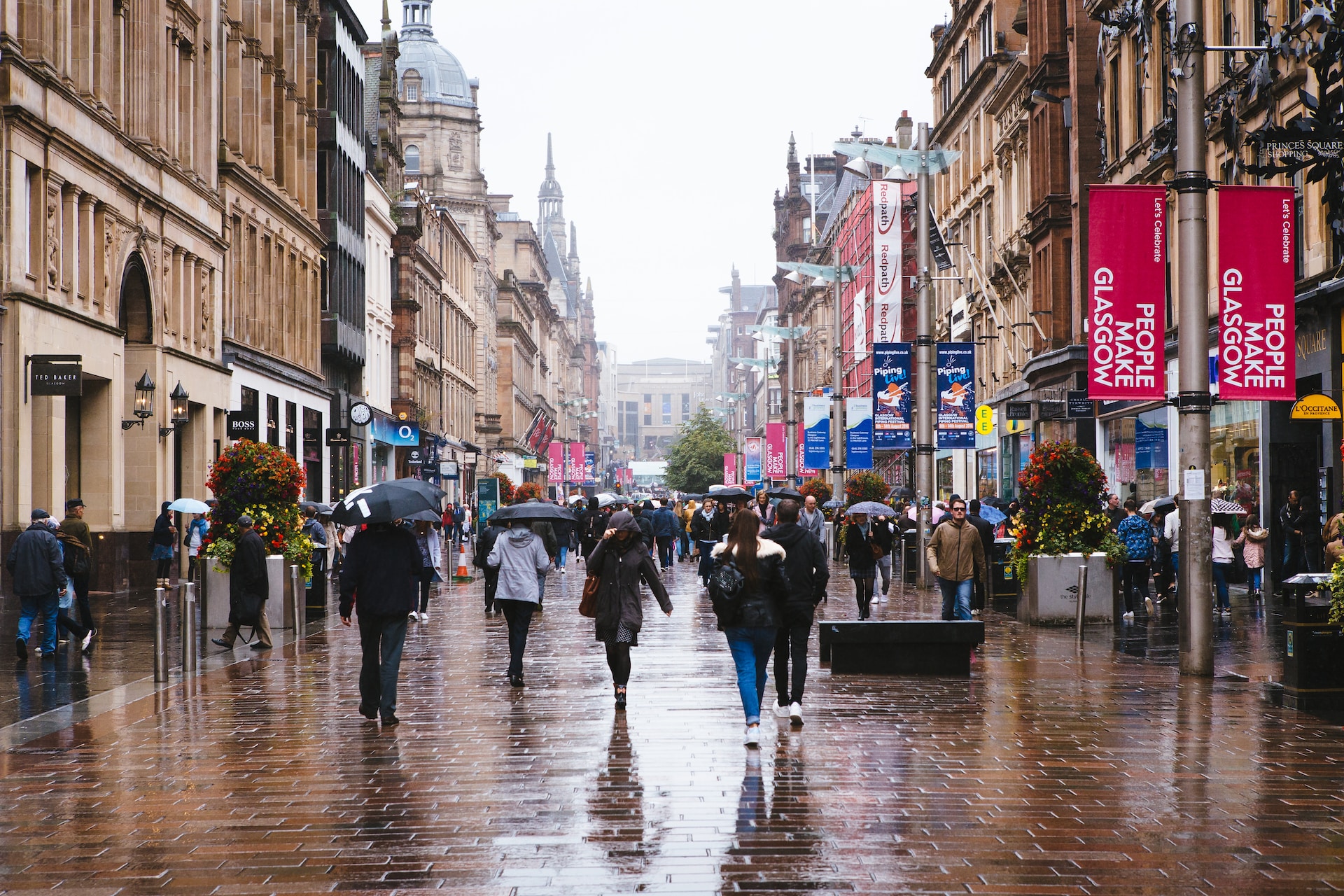Storm clouds over Scottish retail amid decline in July sales

Glasgow's Buchanan Street
Scottish retail sales witnessed a sharp decline in July, with factors including inclement weather and unfavourable economic conditions weighing heavily on the industry, as per data from the Scottish Retail Consortium (SRC).
July’s sales showed a modest growth of 4.6% compared to July 2022, but this fell short of both the three-month average increase of 9.1% and the 12-month average growth of 8.5%. After accounting for inflation, there was a noticeable year-on-year decline of 3%.
This downturn is particularly prominent when looking at non-food items; sales grew by just 0.9% in comparison to last year’s 3.7% growth. When considering the impact of online sales, the figures are even more dismal, with a 2% decrease in non-food sales compared to last year.
Food sales showed a brighter side, growing by 9.1% in comparison to July 2022, but still falling below the three-month average growth of 13.9%. Interestingly, the gloomy weather meant customers were shying away from summer food ranges, opting instead for traditional warming foods.
Ewan MacDonald Russell, SRC’s deputy head, said: “Sales sharply fell in July as the miserable economic news combined with unseasonable weather to heap misery on shops. Real term sales fell by 3%, an abrupt reversal following positive figures in June, as the impact of inflation on retail volumes is now being reflected in the falling value of sales.
“Summer food ranges were ignored as customers turned away from seasonal specials in favour of warming traditional foods. It was worse on the high street as fashion retailers saw hopes of sunshine spending splurges washed out with the unseasonable weather meaning summer clothing lines were subject to early discounting. Whilst that has helped with shifting some stock, the impact on margins will hurt a sector already under significant pressure.
Mr Russell added: “With the wider economy stumbling under the dual burden of high inflation and rising interest rates, this may not be the last month of disappointing sales in the near future. With that in mind politicians need to be realistic on what policy measures they bring forward in the coming months, as it’s certain any further costs will be passed onto hard pressed consumers. It’s quite likely a difficult few months are ahead for Scotland’s already hard-pressed retail industry.”
Paul Martin, partner and UK head of retail at KPMG, said: “A damp and blustery July prompted Scottish shoppers to seek shelter indoors and tighten their purse strings. Total sales growth eked out a modest 4.6% increase in July, set against a backdrop of 10% inflation.
“On the high street home goods took the lead as the best-sellers. However, due to the poor weather, restocking summer wardrobes took a back seat, resulting in many clothing categories experiencing negative sales trends. A few select categories, including furniture, health, and beauty, defied the trend and performed well.
Mr Martin continued: “We’re seeing a substantial increase in promotions as retailers look to attract shoppers and maintain market share. Consumers mindful of prices are shopping more selectively, impacting retail margins and profitability.
“Despite their resilience during the cost-of-living crisis, Scottish consumers may face challenges in sustaining spending due to persistent high inflation and rapidly rising interest rates throughout the rest of the year. Both consumers and retailers are finding that they are having to get used to doing more with less as conditions remain incredibly challenging.”







